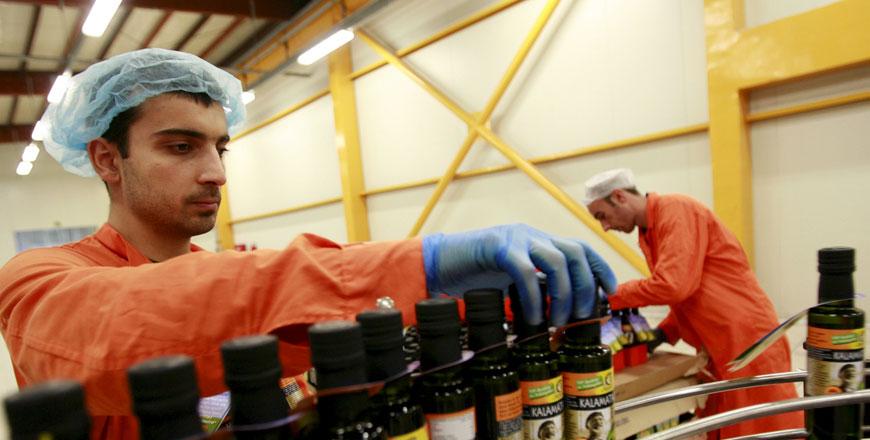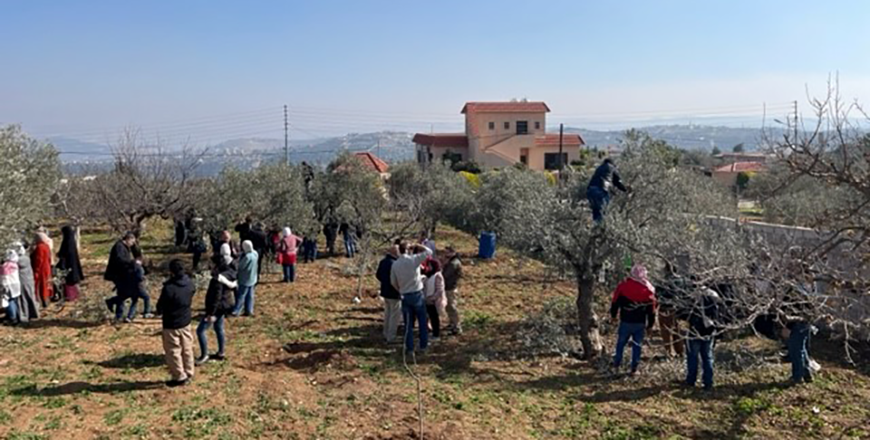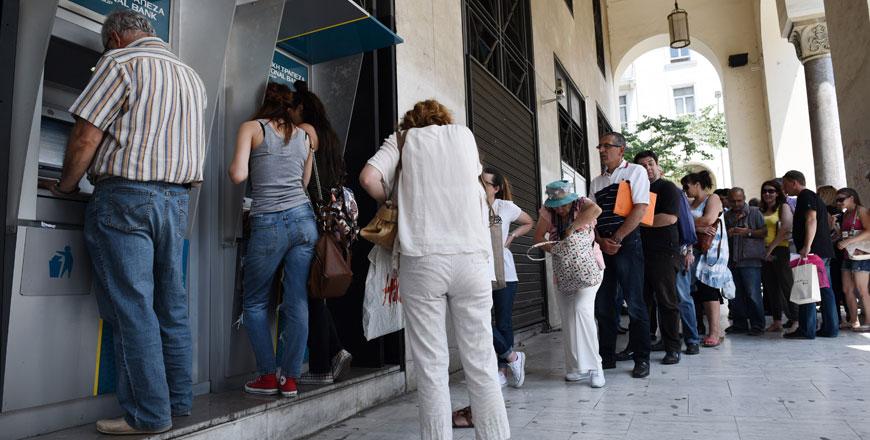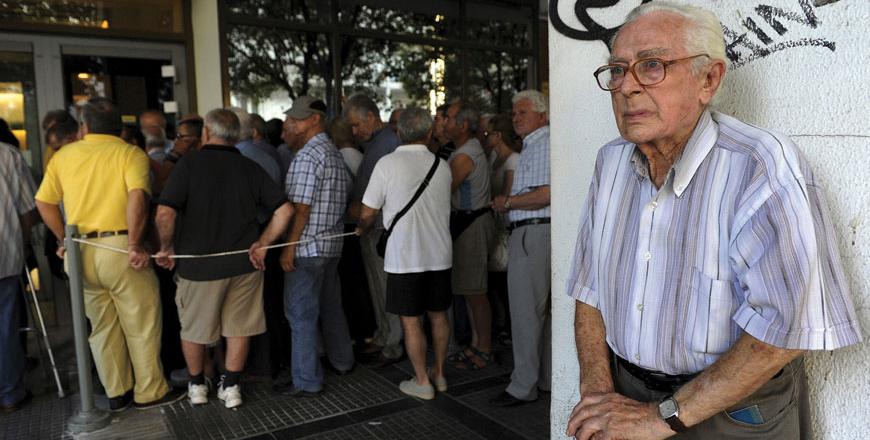You are here
Greek olive farmers demand cash as bank fears grow
By Reuters - Jul 07,2015 - Last updated at Jul 07,2015

Workers pack bottles of olive oil at the Gaea extra virgin olive oil factory near the town of Agrinio, Greece (Reuters file photo)
LONDON/ATHENS — The cash economy emerging after the closure of Greece's banks is beginning to paralyse the country's vital olive oil industry as farmers demand cash for supplies that distributors are unable to pay.
With the country's lenders at risk of default, Greece's half a million olive growers, many of them small family businesses, fear the banks will raid their accounts and are refusing to accept large payments via bank transfer.
"They want it in cash or they prefer to keep their olive oil in their tanks," said Chris Dimizas, managing director of extra virgin olive oil producer Greekpol in the northwestern Peloponnese.
Greekpol does not have enough banknotes to keep paying the farmers even after it asked its own customers, supermarket chains, grocery shops and restaurants, to pay their invoices in cash, Dimizas added.
"It worked for one week, but it won't work forever," he indicated. "If we keep being unable to find a raw material supplier that can be paid through the banking system and not only in cash, the deliveries will stop immediately."
He said the company also risks running out of bottles and caps as they are supplied from abroad and capital controls make it hard to wire payments to foreign suppliers.
Gaea, another olive oil supplier, is offering farmers cheques that they can cash once the banks reopen.
"A single olive oil cargo costs about 100,000 euros, so you can imagine we don't have such sums in cash," CEO Aris Kefalogiannis told Reuters. He said he had secured most of the supplies he needs to keep operating until mid-August.
Gaea was paying some suppliers and transport firms using online banking.
"If web banking transactions stop, I don't know whether we will be able to export. In that case, we will have to see if we can use foreign transport firms," added Kefalogiannis.
Olives have been cultivated in Greece for thousands of years and today the country is the world's third-largest producer of olive oil.
Exports have grown about twice as fast as domestic consumption over the past two decades but, compared to Spain and Italy, there is very little large-scale industrialised olive farming.
Of 520,000 olive growers, only half are professional farmers, according to the United States Department of Agriculture. The rest are small-scale family businesses with relatively little commercial expertise.
"Our clients abroad feels sympathy for the situation and are trying to support us," said Dimizas at Greekpol. "We do not even want to think about what would happen if we left the euro."
Related Articles
AMMAN — Around 190 olive growers, industry workers and government technicians from Jordan have benefitted from training sessions on improvin
ATHENS — Stunned Greeks faced shuttered banks, long supermarket lines and overwhelming uncertainty on Monday as a breakdown in talks with in
ATHENS — Greece's slide to the brink of financial collapse may be abstract to many outsiders, but for the country's chronically sick,


















